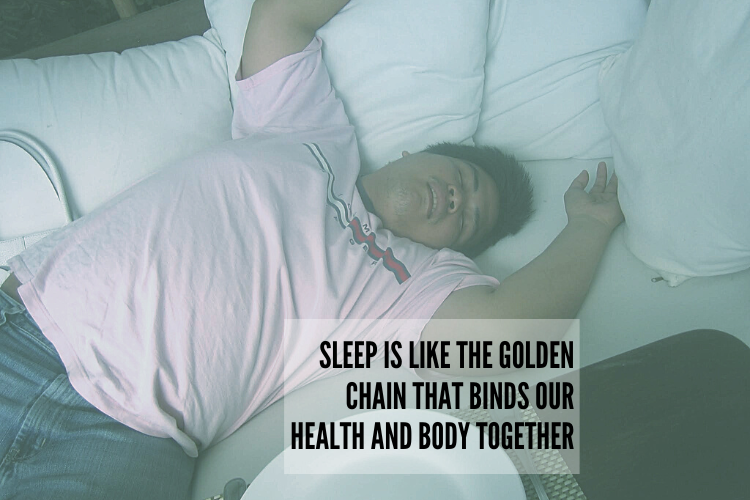How to Get a Good Night’s Sleep

Lying down, standing up. Tossin’ and Turnin’. That’s pretty much my routine these past few weeks. It’s been a while since I’ve been able to get a good night’s sleep, but it has gotten worst. Moving to a night shift schedule certainly did not help.
10-3-2-1-0 Sleep Rule
I’ve resorted to taking melatonin pills, which has helped, but I wanted to try other ‘more’ natural methods. I remembered Dr. Didoy talked about the 10-3-2-1-0 Rules to get a good night’s sleep, so I’ll be trying these out in the next couple of weeks.
Yes, the night shift is probably definitely bad for my circadian clock but let’s just leave that as is for now. I’ll address the night shift problem eventually.
10 Hours Caffeine-Free ☕️
The first rule is to NOT drink caffeine 10 hours prior to sleep. Pretty basic.
So, if you are planning to sleep at 10 PM, you should consume your last cup at 12NN. There is growing evidence that consuming 200mg of caffeine prior to sleep can result in a loss of up to one hour of sleep.
I’m sure this depends on your personal reaction to caffeine because I know someone who actually feels sleepy after a cuppa. Weird but I totally envy her. Also, this depends on the kind and quantity of coffee that you drink. The last time I had a Venti Starbucks Reserve, it took me almost 20 hours to finally fall asleep!
Anyway, I’ll probably check/test my own reaction to the latest coffee brand I have and adjust accordingly.
3 Hours Food/Drink Intake 🍜
An exception, thank goodness, is water intake.
Luckily, this is no longer an issue for me since I’ve been on my intermittent fasting journey for some time now.
For those, who need more evidence on this. Check out these articles on how the nocturnal rise in leptin and nocturnal levels of melatonin could be decreased because of late-night eating as well as how limiting food intake close to bedtime can help in fat oxidation and increase the amount of slow-wave sleep.
2 Hours Stop Working 👨🏻💻
This is pretty hard to do for those like me who are on a night shift. Sure, you want to go right into sleep after work, but your brain is simply still active. Psychological stimulation is known to be one of the main factors related to wakefulness and, boy, my mind just keeps thinking about work, especially the ones I need to continue the next day.
To try to get around this, here are some helpful tips I found.
- Turn off notifications on your phone.
- Put your phone into airplane mode late at night.
- Separate work and personal email as much as possible.
- Set a time to step away from work every day. I also want to (re)try the mindfulness exercises I learned from my friend, Dax, during the UnPlug sessions. Hopefully, this will help quiet my mind and keep it from wandering too much, especially as I lie in bed.
1 Hour No Screens 📵
I’m sure this will be the toughest for me! I like reading books before sleeping but, as I am slowly transitioning away from paper books, no screen before bed will be tough.
Will getting a kindle help me get a good night’s sleep? Now, they say that the more “active” types of screen time, like computer and mobile browsing, have a higher negative effect vs the more “passive” engagement of watching a movie… but I’m not sure how books are.
Right now, I am researching if getting an Amazon Paperwhite device will actually help me get over this. If you have any feedback about this, please let me know (in the comments below or DM me directly please). I really need help with this particular rule.
0 Snooze ⏰
Don’t hit that snooze button!
Here’s what I read from another article: Most often, the sleep cycle you’re in just before waking is the restorative REM stage. When you hit the mighty tempting snooze button, you return to sleep, but you’ve now downgraded your sleep to a lighter, less beneficial stage.
In other words, you are depriving yourself of quality sleep by hitting the snooze button.
I am using the AutoSleep and AutoWake app to help with this. They are paid apps but have been very helpful in waking me up at the “right” time. Note: I’m not sure if they’re available on Android though.
Summary
Although there’s a lot of logic behind the 10-3-2-1-0 rule, my suggestion is to simply use this as a guideline. See, no, try them out and see what works for you.
Do you have any tips to get a good night’s sleep? Please share them with me and the rest of us having trouble sleeping?
 Never miss a story from us, subscribe to our newsletter
Never miss a story from us, subscribe to our newsletter